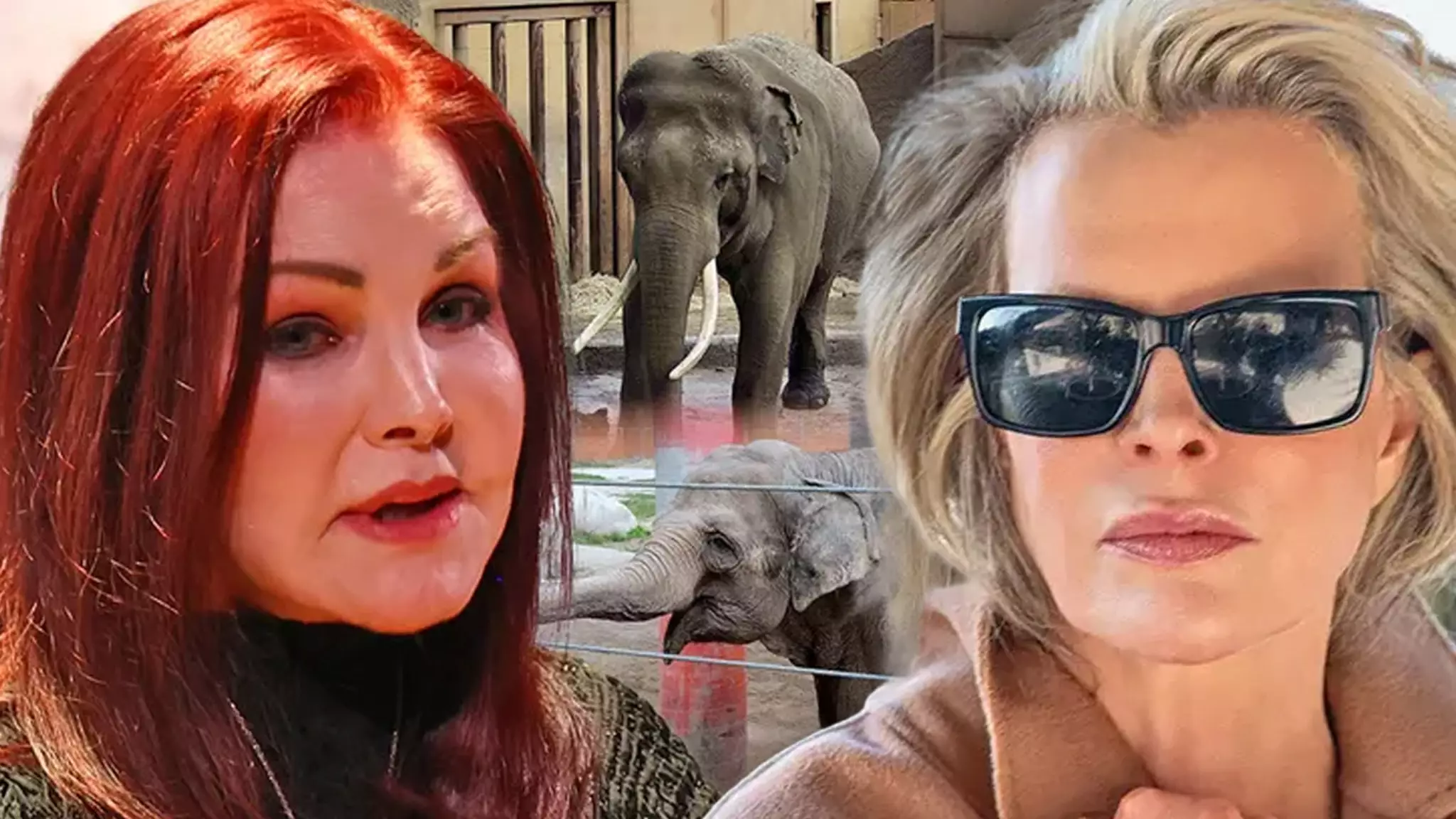In a recent dilemma that shook the foundations of animal rights advocacy, the Los Angeles Zoo’s decision to transfer its last two Asian elephants, Tina and Billy, to the Tulsa Zoo has ignited a fervent outcry for justice and compassion. The circumstances surrounding this transfer echo a poignant call for a deeper understanding of how we perceive and treat wildlife in captivity. Celebrities like Priscilla Presley and Kim Basinger have come forth passionately condemning this move, labeling it both cowardly and inhumane. Their statements reflect not only discontent with the decision itself but an awakening to the broader issues of animal welfare and the responsibilities humans hold towards these majestic creatures.
Hollywood’s Role in Animal Welfare Advocacy
Hollywood has long been a platform for raising awareness about various social issues, but the recent controversy has underscored how influential figures can galvanize public sentiment towards animal rights. Priscilla, who has been a steadfast advocate for animal welfare for nearly ten years, voiced her heartbreak and outrage over the transfer. She articulates a vision where elephants live free and unshackled, a sentiment strikingly echoed by Basinger. Their combined ire serves as a clarion call to action for not just Hollywood but for society as a whole.
Instead of dismissing the celebrities’ frustrations as mere sentimentality, it is critical to analyze the systemic failures that resulted in this situation. Their voices resonate because they highlight the need for better alternatives to captivity, such as sanctuaries where these elephants could thrive.
A Missed Opportunity for Compassionate Leadership
The decision by L.A. Mayor Karen Bass, amidst pending lawsuits intended to block the transfer to the Tulsa Zoo, raises serious questions regarding the integrity and compassion in leadership. Kim Basinger’s accusation that Mayor Bass lacks compassion and misuses her authority is more than a personal attack; it encapsulates the frustration of many Angelenos who believe their leaders should prioritize the welfare of animals over bureaucratic convenience. The opportunity to provide a sanctuary environment for Tina and Billy is said to have been a “slam dunk,” yet the decision to transfer them to another zoo speaks volumes about a systemic disregard for the intrinsic needs of these animals.
The transfer could be interpreted as a failure not just of the mayor’s office but of a broader social contract that mandates the protection of vulnerable lives. Captivity, as poignantly expressed by Basinger, resembles incarceration without the human capacity for recovery. The public outrage should not singularly focus on this incident but must initiate ongoing discussions about the ethics of zoos, the treatment of captive animals, and what it means to genuinely advocate for wildlife.
The Power of Celebrity Influence
The power of celebrity to effect change cannot be understated. The eloquent statements from Presley and Basinger resonate on a cultural level, attracting media attention and compelling conversations that might otherwise be overlooked. Their proactive involvement, in conjunction with a host of other celebrities, sends a message to both citizens and lawmakers that the welfare of animals must be elevated in public discourse.
Cher, Diane Warren, and Alicia Silverstone—among others—have added their names to the advocacy effort, creating a chorus of prominent figures urging compassion over convenience. This teamwork exemplifies how collective voices can spark significant shifts in public perception and potentially influence policy, pushing against the tide of complacency that often surrounds animal welfare issues. However, once the noise fades, the challenge remains: ensuring that this activism converts into sustainable change, rather than remaining a fleeting moment of outrage.
Looking Forward: The Importance of Sustainable Change
The current uproar surrounding Tina and Billy serves as a reminder that while individual cases may grab headlines, the focus should consistently shift towards long-term solutions that prioritize the protection of animals in captivity. As more activists and celebrities emerge to champion animal rights, it is crucial to channel this energy into meaningful legislative changes. The yearning for a future where no elephants or similar animals endure captivity in Los Angeles County requires a concerted effort that transcends the immediate crisis.
By recognizing the powerful anecdotes voiced by influential figures and coupling this with consistent advocacy for change, we can cultivate an environment where policies evolve to reflect a compassionate society—one that values freedom for all beings. The fight for a sanctuary-based existence for Tina and Billy should be viewed not as a standalone battle, but as part of an ongoing movement dedicated to safeguarding the rights and dignities of all captive wildlife.

